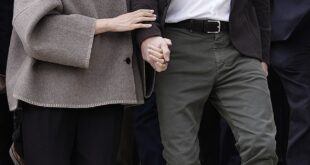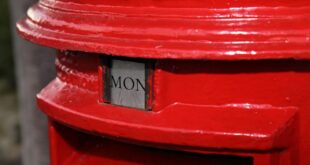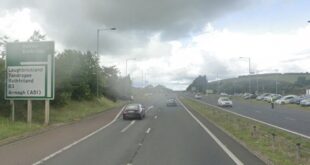A jury has heard how an alleged murder victim sustained numerous stab wounds which ultimately led to her death.
Sally Turner, 50, was found dead after suffering numerous stab wounds at a home in Cuthbert Avenue, Durham on June 22 last year. Her husband, Harry Turner, 54, is currently facing a trial at Teesside Crown Court charged with her murder – which he denies. He has admitted manslaughter on the grounds of loss of control – which the Crown does not accept.
The jury has so far heard from witnesses, including a taxi driver Sally was having an affair with at the time of her death, and Royal Mail work colleagues of Turner – who described him as a “gentle giant”. On Wednesday, the jury heard evidence from Dr Louise Mulcahy, a forensic pathologist, who discussed the injuries Sally sustained, as well as another Royal Mail colleague.
Read more: Durham murder trial: Pathologist gives evidence as postman denies murdering wife Sally Turner
Dr Mulcahy told the jury that Sally had sustained 78 incise wounds – caused by a sharp implement – to the skin, face, neck, torso, including her chest and abdomen, and also to the upper limbs. She said that there were at least “68 uses of a knife” to inflict the incised wounds, with some of the injuries being connected, described as a “through-and-through injury”.
Dr Mulcahy said Sally’s cause of death was due to multiple stab wounds to her neck and torso, which had caused damage to the jugular vein and had cut through her main airway. There was also damage to her chest cavity, lungs and spleen, as well as the left kidney. She said: “The injuries would have led to haemorrhage and breathing issues, ultimately leading to her death”.
The jury heard that the combination of the stab wounds caused death through blood loss and breathing difficulties with Sally also sustaining fractures to her right shoulder blade, including nine incised wounds which caused damage to bone, and required “significant force” to inflict. Dr Mulcahy said that Sally’s injuries meant she would have been capable of movement for seconds or even minutes after they were inflicted and that no traces of drugs or alcohol were in her system.
Mark McKone KC, prosecuting, said police recovered two knives at the scene of the alleged murder, but Dr Mulcahy said it was not possible to know if more than one knife was used. However, she said that it was possible the injuries were caused by one knife.
As well evidence from Dr Mulcahy, the jury also heard from a former colleague and friend of Turner, who explained the pair would work together and share personal conversations. He said in 2019, Sally and Turner seemed to be in a happy relationship, and that there was “a lot of domestic bliss and a lot of love in the relationship.”
But in 2022, Turner explained to the witness he was having marriage troubles and his behaviour changed and became “up and down”. The jury heard that Turner was contemplating suicide and had become “paranoid”, which included sending the witness “bizarre” text messages.
Despite the concerning text messages, the witness told the jury that he felt Turner was “desperately trying to seek the truth” regarding her affair, and that he would say he wanted to “make a go of it” with Sally. The witness added: “He was all over the place, this was not the Harry I went to work with, he wasn’t the same person. He was paranoid and just wasn’t himself.”
The trial continues.
Read next:



